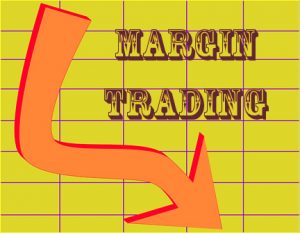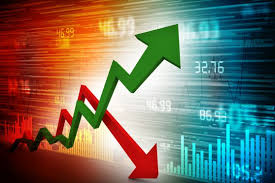To be a margin trader means to use funds you lend from a broker. This way, you trade assets with borrowed funds. The asset in question then becomes the collateral for that loan that you took from your broker.
This has great potential to significantly increase the profit. However, it is also quite possible for it to cause incredible losses. Creating a financial leverage is a well known two-edged sword in the world of finances.
Due to the high-risk nature of this line of trading, it is only possible by use of margin accounts. But, let’s take it slow and go one step at a time.
What is Margin Trading?
 In very general terms a margin is a border, an edge of something. However, in the financial world, the word margin has a slightly different meaning. Namely, the margin, in this case, is related to the collateral we have mentioned previously. The margin is used to cover the credit risk the margin trader poses for the lender. Essentially, it is the sum of money that you would have to ensure from your funds. The margin can vary greatly, which usually depends on the resource in question. For an example, a margin for currency futures is usually quite low. In fact, it would rarely get over 6 percent of the total value of the contract. However, if stocks were in question they would require quite a bit more. To be a bit more precise, you would usually have to cover at least 30 percent of the value and up to one half of it. One should bear in mind that the margin requirement will always follow the stock and how volatile it is. The more volatile the stock in question is, the higher the requirement will be.
In very general terms a margin is a border, an edge of something. However, in the financial world, the word margin has a slightly different meaning. Namely, the margin, in this case, is related to the collateral we have mentioned previously. The margin is used to cover the credit risk the margin trader poses for the lender. Essentially, it is the sum of money that you would have to ensure from your funds. The margin can vary greatly, which usually depends on the resource in question. For an example, a margin for currency futures is usually quite low. In fact, it would rarely get over 6 percent of the total value of the contract. However, if stocks were in question they would require quite a bit more. To be a bit more precise, you would usually have to cover at least 30 percent of the value and up to one half of it. One should bear in mind that the margin requirement will always follow the stock and how volatile it is. The more volatile the stock in question is, the higher the requirement will be.
Margin Accounts
Since margin traders accept the risk that comes with it, they must use a special type of an account. These margin accounts are quite different from the usual cash accounts. Margin accounts are usually offered by brokerages to create a possibility for the investor to borrow funds which he can then use to purchase securities. They always expect the investor to put down a certain amount before borrowing the rest. This is usually 50%. The broker will, of course, charge for the service in question and the securities are a collateral. The main difference between a margin account and a cash account is that you cannot short sell with cash accounts. Also, certain instruments can only be traded in them. For an example, futures and commodities.
The Risks of Margin Trading

Margin trading is definitely one of the riskier businesses out there. For that reason, there are multiple entities monitoring it and governing it. The Federal Reserve Board, Financial Industry Regulatory Authority, and even self-regulatory organizations (for an example – stock exchanges) as well as every single brokerage company.
For example, the New York Stock Exchange follows the margin debt sum. And, as of the 11/2017, the debt was almost 560 billion dollars. Of course, this does not come as a surprise. After all, almost every single equity index was at an all-time high or near it. It is relatively common to see margin debt follow market peaks. However, those who follow the movement of the market over longer periods are worried. They can compel investors to sell their assets to cover their margin calls which worsens the drop of stock prices. This pressure can cause complete market crashes.
Consensus: Leave it to the pros
We can all agree that this form of trading is definitely not something you would recommend to a beginner. It is a smart choice to leave it to traders with experience and those who are familiar with the risks. Even if the leverage can significantly increase your gains. If you do not have the experience one needs for a margin trader, you should stick to long-term investments.



 Types of Brokers
Types of Brokers

